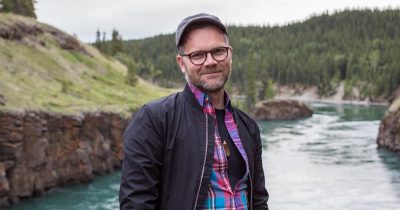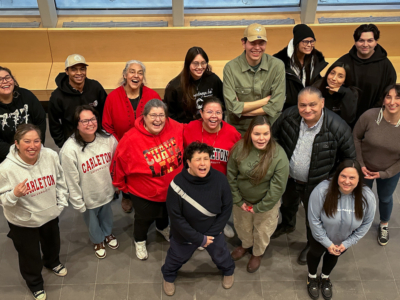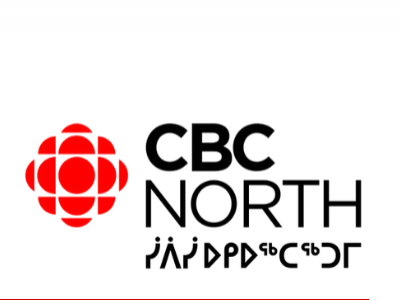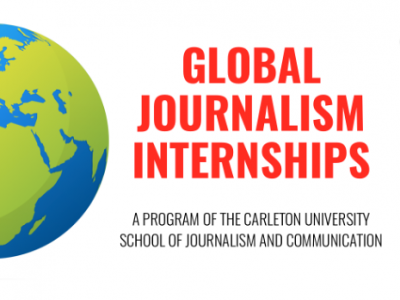In a first for Carleton’s journalism program, an interview simulation exercise using actors is preparing journalism students for real-life interviews with trauma survivors.
The innovative exercise partners students enrolled in Prof. Matthew Pearson’s new specialized reporting course on trauma-informed journalism with a professional actor portraying a person who has experienced a traumatic event.
Students choose from case-study scenarios that reflect the kind of reporting assignment an early-career journalist might receive in a newsroom, such as critical injury or the sudden death of a loved one. Students research the topic in advance and compose questions in preparation for an interview with one of four Ottawa-based actors.
The 45-minute interviews, conducted over Zoom, are recorded and shared with students afterward. Students consolidate their learning by writing a critical reflection of the experience and participating in a debrief with the actors.

Photo By Kanina Holmes
Pearson says the goal of the exercise is to help better prepare students for the necessary task of reporting on people immersed in traumatic situations.
“What I hope to create is an opportunity for students to apply the interview skills they’ve learned in the classroom in a dynamic way,” Pearson said. “This exercise also ensures that, for some students, their first encounter with a trauma survivor occurs in the relative safety of a classroom environment that allows room for mistakes and growth.”
As the 2017 Michener-Deacon Fellow for Journalism Education, Pearson carved a niche as a researcher by pursuing a new and developing aspect of journalism pedagogy intended to teach students how to cover traumatic incidents and report on people who have experienced trauma. He has presented this innovative work and led workshops on trauma-informed journalism at conferences, journalism schools, and in newsrooms across Canada. His fourth-year Trauma-Informed Journalism course is the first of its kind at Carleton.
Simulation-based learning activities are common in the field of medical education, as well as teacher and management training, among others. This is the first time such a simulation has been used at Carleton’s School of Journalism and Communication.
Prof. Allan Thompson, the head of Carleton’s journalism program, said the exercise supports students in overcoming the nervousness some might feel when they approach difficult interviews – a necessary skill in today’s newsrooms.
“Journalists often swoop in at the most difficult moments of a person’s life, so it’s important to know and to practice how to do this without causing further pain,” he said.
The need to teach journalism students how to report on trauma ethically and sensitively is clear. According to Taking Care: A report on mental health, well-being and trauma among Canadian media workers – produced by Pearson and research collaborator Dave Seglins, a veteran CBC News journalist and well-being champion at the national broadcaster, 90 per cent of respondents to a national survey of more than 1,200 media workers said they did not receive trauma training while in journalism school.
The exercise is funded, in part, by the Carleton University Experiential Learning Fund.
Monday, March 13, 2023 in General, Journalism News, News
Share: Twitter, Facebook



